Under Kohli, playing cricket will now be about winning, not avoiding defeat.
India will not just be liked or admired -- it will be respected and feared.
A country whose stars were labeled 'talented' or 'elegant' or 'inconsistent' now finds itself with a captain who is professional, tough, and combative, the embodiment of athleticism, aggression, and ambition.
A fascinating glimpse from Pride, Prejudice And Punditry: The Essential Shashi Tharoor.
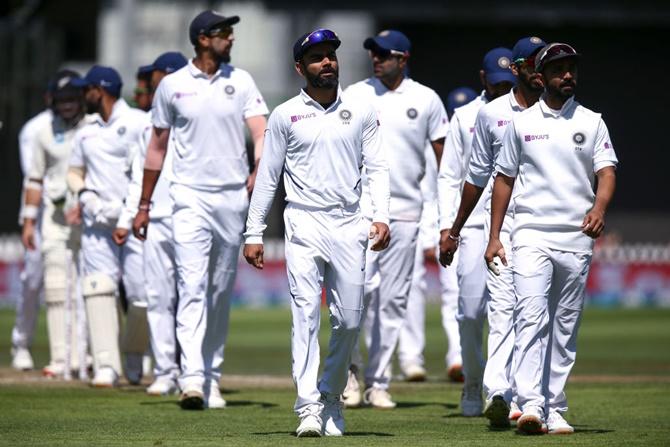
I first heard the name of Virat Kohli on 20 December 2006, when newspapers reported the story of an eighteen-year-old Delhi batsman in his debut season scoring a chanceless 90 at the Feroz Shah Kotla against a Karnataka Ranji Trophy team.
It wasn't the impressive score that mattered, nor the quality of the opponents, nor the fact that he wasn't out when he was given out, as replays confirmed.
It wasn't even that Kohli, 40 not out overnight, with his team staring at a follow-on and the last recognised pair in the middle, saw his side through to safety.
No, what really mattered -- what made the story stand out for me -- was the simple fact that Kohli had lost his beloved father, Prem Kohli, at the young age of fifty-four, at three o'clock the same morning.
'We told him,' Delhi captain Mithun Manhas said at the time, 'that if he decided to go back and be with his family, the entire team would support him. He decided to play. That is an act of great commitment to the team and his innings turned out to be crucial.'
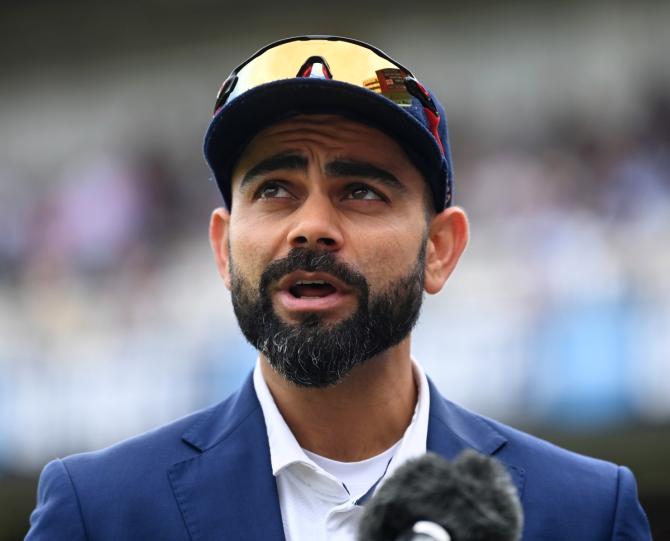
It did not surprise me, therefore, when, less than two years later, in 2008, he became only the second India captain to win the Under-19 World Cup, scoring one of the tournament's few centuries.
The sight of him on television, with bushy, dark eyebrows and an intense stare, leaping all around the field, taking improbable catches, constantly exhorting his team on to victory, is almost the only recollection I have of the tournament.
Nor was I surprised when he was blooded young by India, making his ODI debut in 2008 against Sri Lanka, in the unaccustomed role of an opening batsman.
Nor when Anil Kumble, hardly a man given to extravagant statements, called him the best international cricketer under twenty-two in the world.
Yet some of the adulations seemed to go to his head; the youth who had shown such character, such tight self-control, at a time of personal crisis, acquired a reputation for being brash, arrogant, ill-behaved.
As I spoke to keen observers of the game who had spotted his potential early, I heard a note of concern, even alarm, that Virat Kohli's prodigious talent was in danger of going astray.
But the selectors kept the faith, picking him for touring teams to the West Indies, England, and Australia, and it was in Australia that he finally repaid their faith, showing what he was capable of with a composed century in the Adelaide Test when illustrious teammates Tendulkar, Laxman, and Dravid had failed around him (indeed it was India's only Test century in that disastrous series).
On the same tour, he demonstrated his one-day brilliance in a match that seemed certain to knock India out of the CB Series tourney.
When India needed to chase down 321 in under 40 overs to survive in the tournament, Kohli smashed an astonishing 86-ball unbeaten 133 to ensure an improbable victory.
He hasn't looked back since. He is one player who seems to be constantly improving: An organised, compact defence; a flurry of strokes, especially a rasping cover drive and a powerful flick though mid-wicket; and, above all, a willingness to take the fight to the bowlers, whatever the match situation, are the hallmarks of his batting.
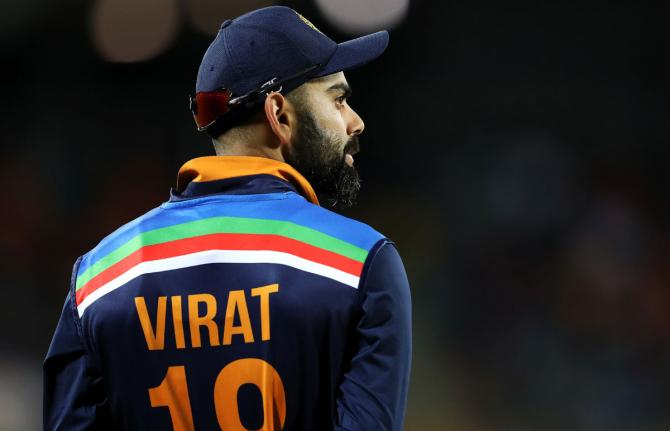
His prodigious appetite for runs means that he is ahead of his illustrious contemporaries (Smith, Root, and Williamson) by every statistical measure.
Indeed, Kohli has more runs and more centuries at this stage of his career than the immortal Tendulkar had, and that is the most extraordinary yardstick there is.
He has had only one major failed series, the England tour of 2014 when the English seamers seemed to have 'found him out', and he kept getting caught in the slips off deliveries he could have left alone.
By the tour's end, he looked like the proverbial deer in the headlights, unsure where his off-stump was and which balls to play.
He left England among the walking wounded, but he worked on his game and ruthlessly eliminated the error.
Since then he has been masterful, scoring three double centuries and taking his Test average above 50.
He returned to England in 2018 and stood alone among the wreckage of a 4–1 defeat, scoring two centuries and averaging 59.30.
In the first Test, he scored 149 and 51 when no one else scored more than 31 and India lost; in the third, 97 and 103 to take India to its only victory.
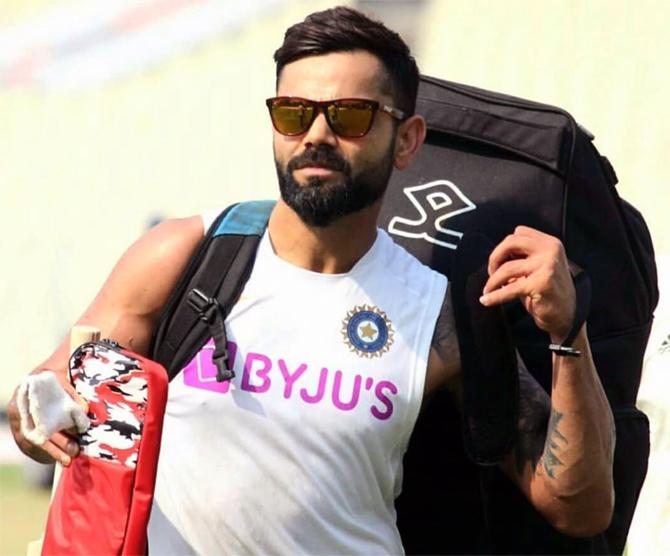
Kohli has not just become Mr Dependable, the batsman India looks to who succeeds far more often than he fails; he is also a player who thrives in crisis situations, absorbs pressure, and enjoys the challenges of saving a match or chasing a difficult target.
His hunger for runs is unmatched, as the statistics confirm: since he began playing, no one has scored more than him in all three forms of the game.
In ODIs, Kohli is the quickest batsman ever to 25, 30, 35, and 40 ODI hundreds (he has 43), the fastest to 7,500 and 10,000 runs (he has over 12,000), and has already exceeded Sachin Tendulkar's record of 14 centuries in successful run chases.
Whether in a limited-overs foray or a Test match, India always has a chance as long as Kohli is there.
He was marked for his leadership qualities as a teenager, but with growing maturity and responsibility have come a gravitas and sensitivity that balance his exuberant confidence.
He leads by example, not just by scoring runs but by never ceasing to try to direct the game.
He is everywhere on the field, exhorting his fielders, advising his bowlers, setting the placings, shining the ball himself, a restless blur of energy wanting to be involved in every single ball and unwilling to cede the slightest advantage to his opponent.
His winning percentage in Tests as captain is already the best ever for any Indian who has captained the side more than five times.
His own performance has a lot to do with those results: He is the only Test player to have scored three consecutive centuries in his first three innings as captain.
Above all, is the manifest commitment to his team that he demonstrated in that tragic Ranji match a decade ago.
It is inspiring to see the genuine pleasure he takes in his teammates' accomplishments.
There was a telling moment during a Test series against England when K L Rahul, whose earlier Tests that season had been blighted by early dismissals and injuries, reached a century.
As he set off for the run that sealed Rahul's 100, Kohli, his face split in a wide grin of joy, began a bat-waving celebration before the centurion did.
He was in the middle at that time, but he is equally committed to his teammates' success off the field.
Every landmark reached by an Indian batsman features the skipper rising enthusiastically in the pavilion. This is a captain whose commitment to his team is absolute.
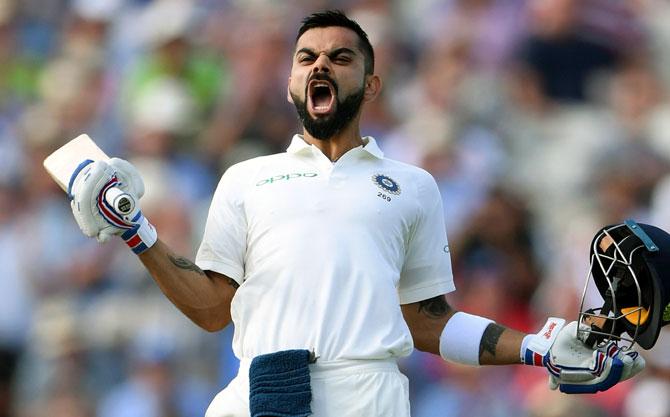
Kohli has taken India well beyond the era of playing for a draw, as so many previous captains preferred to do, unwilling or unable to trust the resources at their disposal.
Kohli goes for a win every time he can; while he has shown, when needed, the ability to bat out a draw when victory is mathematically impossible, when a win is improbable but feasible he will aim for it, as in his first Test as captain, against the formidable Australians.
The reason Kohli has the highest win percentage record of any Indian captain is that he wants to win, every time.
He doesn't ask for favorable conditions or turning pitches, doesn't lament his luck with the toss, doesn't moan about injuries. He takes what he is given and always believes he can win.
It is no accident that India has adopted the Decision Review System (DRS) under his leadership, after having resisted it obdurately for years out of over-cautious suspicion when the rest of the cricket-playing world was benefiting from the application of technology to dubious umpiring decisions.
What are the personal qualities that make Kohli what he is? In a 'chalta hai' society, he is a rare perfectionist, lean and well-muscled, who trains obsessively, plans and prepares meticulously, controls his diet, and stays supremely fit.
Watching him run between the wickets is watching a sprinter in action; with the bat, his power is matched by timing and silken elegance.
While many Indian players might have been endowed with more God-given talent than Kohli, he has made the most of his gifts and keeps on improving with every outing.
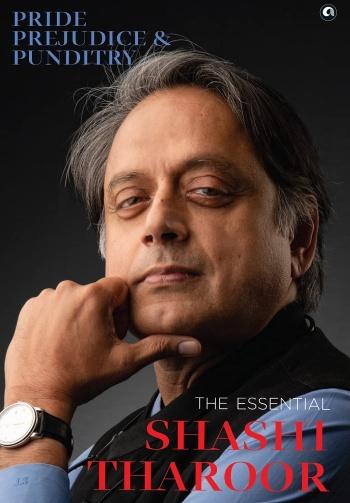
With the physical basics covered, Kohli is also gifted with rare mental strength and the ability to focus, again as he demonstrated the day he lost his father.
After a trial like that, absorbing the pressure of a run chase must seem trivial to him. It is already widely acknowledged that there is no better chaser in world cricket.
With this comes unrivalled big-match temperament.
Kohli excels in finals and semi-finals; crunch situations have time and again brought out the best in him.
And there is his passion and intensity, which are unmatched. There is a relentless focus to his approach that brooks no slackness.
He wears his heart on his sleeve, though he has learned to curb the occasionally offensive words and gestures that marred his earlier expressions of cricketing passion.
Sourav Ganguly tells a story of how somebody asked Virat Kohli why he wanted to work out in the gym just after scoring 167 in his 50th Test; Kohli replied with a straight face that he wanted to score a double hundred in the next one. (He has scored two.)
Yet Kohli is a flexible player, adjusting his approach to the needs of the game. He has not been given enough credit for his improved shot selection and risk management as a batsman.
He cheerfully charges down the wicket and lofts the ball in the shorter versions of the game, but rarely plays an aerial shot in Tests.
He is hungry for runs in every format and aware that in each version of the game, and in each situation, he has to get them differently.
Under Kohli, playing cricket will now be about winning, not avoiding defeat.
India will not just be liked or admired -- it will be respected and feared.
A country whose stars were labeled 'talented' or 'elegant' or 'inconsistent' now finds itself with a captain who is professional, tough, and combative, the embodiment of athleticism, aggression, and ambition.
Individual landmarks, he has repeatedly made clear, matter much less to him than team triumphs.
Excerpted from Pride, Prejudice And Punditry: The Essential Shashi Tharoor by Shashi Tharoor, with the kind permission of the publishers, Aleph Book Company.
Feature Presentation: Rajesh Alva/Rediff.com











